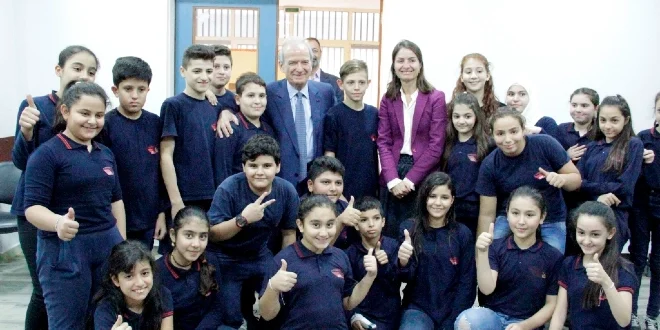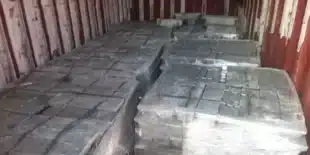The European Union has declared an additional funding of 40 million Euros to Lebanon’s education sector. This investment aims to sustain the provision of quality education for vulnerable children.
To be executed by UNICEF, this new funding will assist in enabling marginalized children between the ages of 3-18 to access education by diminishing enrollment obstacles, as stated by the European Union Delegation to Lebanon.
The commitment was announced during a collaborative visit to a public school by the EU Ambassador to Lebanon, the Lebanese Minister of Education and Higher Education (MEHE), and a UNICEF Representative.
This allocation is intended to support the Lebanese government in reforming and upgrading the education sector. It aligns with the MEHE’s 5-Year Plan for General Education (2021-2025) and the Transition Resilience Education Fund (TREF).
Abbas Halabi, the Minister of Education and Higher Education, expressed gratitude to the EU and UNICEF for their steadfast support of the Ministry’s comprehensive five-year plan. This plan is inclusive of both Lebanese and refugee students and resonates with the government’s commitment to universal quality education.
During a visit to Ghazir Mixed Secondary School, Minister Halabi highlighted the school’s rehabilitation, which is part of a broader initiative encompassing the restoration of 26 schools this year and an additional 80 schools planned for next year.
The EU Delegation emphasized that promoting education in Lebanon has been a key focus since 2017. Annually, over 400,000 children in Lebanon receive formal education, with EU support facilitating access for over 4,500 children with disabilities in 110 public schools. Additionally, the EU plans to fund the refurbishment of 52 public schools by 2024, including provisions for drinkable water and solar energy.
EU Ambassador Sandra De Waele noted that the renovated school they visited is one of eleven already upgraded, with 63 more undergoing rehabilitation. The EU remains dedicated to backing public education for all children in Lebanon, especially given the various challenges facing students, parents, teachers, and educational institutions.
UNICEF Representative in Lebanon, Edouard Beigbeder, acknowledged the critical role of schools in supporting children’s health and mental wellbeing. Despite MEHE’s efforts in providing inclusive, quality learning for many vulnerable children, challenges remain with some still unable to attend school. Beigbeder expressed gratitude for the EU’s ongoing support, which ensures that educational costs do not bar children from attending school and that schools are equipped to remain open, offering an inclusive and safe learning environment.


